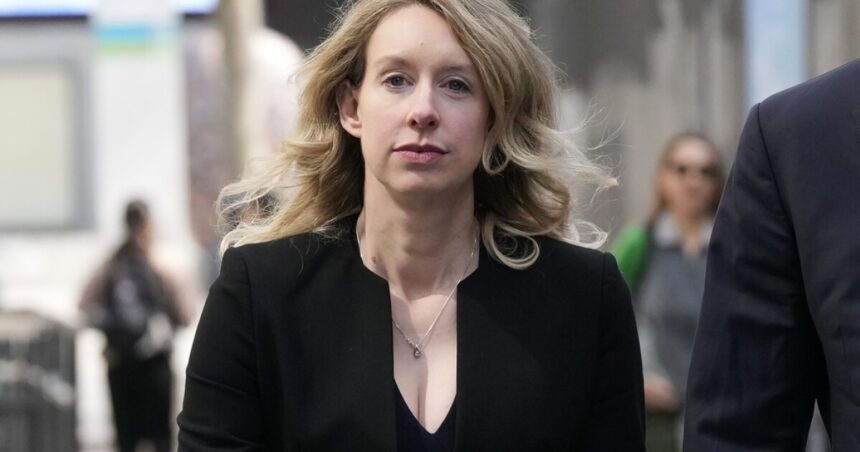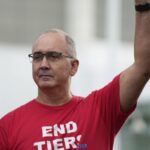A panel of federal judges spent a couple of hours on Tuesday grappling with legal issues in an effort to reverse a fraud conviction that resulted in Theranos CEO Elizabeth Holmes being sent to prison following a rapid ascent to fame in Silicon Valley.
The hearing, held in the San Francisco appeals court, took place almost two and a half years after Holmes was convicted for masterminding a blood-testing fraud that became a cautionary tale about ambition and arrogance in Silicon Valley. Holmes used Theranos, a startup she established in Palo Alto, California shortly after leaving Stanford University in 2003, as her tool of deception in her quest to revolutionize the healthcare industry.
Holmes, currently serving an 11-year sentence in a Texas prison, was not present at the hearing. However, her parents and partner, Billy Evans, who is the father of her children, were in attendance. The three federal prosecutors involved in her trial were also present, with two of them, Jeffrey Schenk and John Bostic, now working for private law firms.
Three appeals court judges, Jacqueline Nguyen, Ryan Nelson, and Mary Schroeder, did not reveal their inclinations toward upholding or overturning Holmes’ conviction. They did indicate that substantial evidence would be necessary to overturn the jury’s decision.
Nelson seemed conflicted, showing sympathy when Holmes’ attorney, Amy Saharia, argued that the verdict warranted close examination, as the jury had acquitted Holmes on four counts of fraud and conspiracy and was deadlocked on three others.
Before ending the hearing, Nguyen stated that a ruling would be issued in a reasonable timeframe without specifying an exact date. Appeals courts can take various lengths of time to rule on criminal conviction appeals, ranging from weeks to over a year.
Holmes is set to remain in prison, with a scheduled release date of August 2032, earlier than her full sentence due to her good behavior thus far.
Crime
Theranos CEO Elizabeth Holmes has federal prison sentence reduced again
8:08 PM, May 07, 2024
About a decade ago, Theranos was highly regarded in the healthcare sector, with then-Vice President Joe Biden and others praising it as a symbol of American innovation. Holmes had become a media sensation with a fortune of $4.5 billion.
The excitement stemmed from Holmes’ claim that devices developed by Theranos could detect numerous diseases with just a few drops of blood. However, the devices produced unreliable results that Holmes and her former partner and lover at the time, Ramesh “Sunny” Balwani, tried to conceal.
When the flaws in Theranos’ technology were exposed, the company collapsed, leading to criminal charges against Holmes and Balwani. Prosecutors aimed to dismantle the “fake it ’til you make it” mindset prevalent among Silicon Valley entrepreneurs seeking success with flawed products.
In addition to hearing arguments from Holmes’ lawyers, the appeals panel also listened to arguments from attorneys representing Balwani, who is seeking to overturn his 13-year prison sentence after being convicted of fraud and conspiracy in July 2022.
Balwani, 58, alleges that federal prosecutors manipulated evidence to bias the jury against him, presenting a different narrative than that of Holmes’ trial, which concluded just before his began in March 2022. Unlike Holmes, Balwani was found guilty on all 12 felony counts he faced, leading to a longer prison term. He is currently slated for release from a Southern California federal prison in November 2033.





